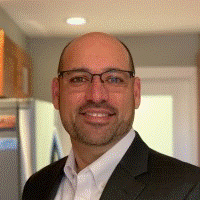Raul Moronta, CRME, CHIA, has had a career path that closely tracks with the growth and evolution of hospitality. He started out in an on-property sales position while attending college in his native Dominican Republic, then moved to New England and took a night auditor job as he worked toward his master’s degree in hotel administration. He went on to work front-office jobs at various properties, then became a director of revenue management with Starwood, overseeing two properties for two different brands before taking on a variety of above-property revenue positions.
 Moronta left Starwood to become senior vice president of revenue management for Crescent Hotels & Resorts, stayed there for nearly four years, then in December stepped into a brand-new position — for himself and his company, Remington Hotels: chief commercial officer. Over more than 25 years, he’s gone where the industry has gone, from sales and operations to revenue and commercial strategy.
Moronta left Starwood to become senior vice president of revenue management for Crescent Hotels & Resorts, stayed there for nearly four years, then in December stepped into a brand-new position — for himself and his company, Remington Hotels: chief commercial officer. Over more than 25 years, he’s gone where the industry has gone, from sales and operations to revenue and commercial strategy.
But looking back, he has no doubt where it all started. “I would say in high school,” Moronta said without hesitation during a recent interview with HSMAI. “At the time, the Dominican Republic was actually having a big boom in hospitality. It had become the number-one industry for the country, and I was very excited about it. I said, ‘This is what I want to do.’”
Pretty early in your career, you gravitated toward revenue management. How did that come about?
The initial part of my career was actually in operations. I went the full route of front-office manager, executive housekeeper, and my intent was actually to become a rooms division manager and general manager. But I’ve always loved numbers. I’ve always loved the mathematical approach to solving a problem, and early on I got an opportunity to go to a class in full front office management at Cornell University.
There was one chapter in the course called “Yield Management,” and I was fascinated by it. I was fascinated with check-ins and checkouts and no-shows and cancellations, and that whole mathematical approach about how you ended the day and how much money you made. Then I had an opportunity to do some revenue management when I was front-office manager, and that is when I transitioned from being a front-office manager to my first revenue manager role.
What were some of the skills that helped you succeed in revenue management?
If you think about it, everybody gets the same information. Everybody gets access to the STAR report. Everybody gets access to pricing. To me, it’s a matter of being able to beat out your competitor with the same tools and being able to find the underlying trends that nobody else is able to see. I’ve always been able to find that, to figure out the story underneath the story that nobody’s looking at.
I’ve always said that my goal and the goal of every revenue manager is to stay curious. A revenue management system makes you predictable, and because of that, you have to be able to bend the trend. An algorithm is not going to tell you that; an algorithm is going to perpetuate history. You want to create it, and it’s going to take a different approach for you to do that.
The commercial strategy officer is a new position that Remington has created. Tell us about it.
Where we are now is that a customer doesn’t care whether they’re talking to a digital person, a revenue management person, or a salesperson. We have changed a lot, from being a transactional relationship to a more holistic approach. We want to have a different engagement, whether you are a B2B or B2C. It doesn’t matter to us who the client is, we have to have an approach that is engaging.
In my role, my goal is for us to have a commercial strategy approach to growing rev. At the end of the day, we have to say, we are here to grow revenue for that owner. We are here to provide products and services to a guest or a client. And if we have that customer-centric or client-centric approach, then you don’t have to worry about departments. That’s for us to worry about it on the internal side.
How do you foster that approach among multiple departments that traditionally have been very siloed?
It starts with the leadership side. I firmly believe in what I called the three-legged stool: operations, sales, and revenue. Those three leadership teams usually are regional directors or vice presidents. They have to have a cohesive message among them. There’s always going to be disagreement, but once the decision is made at that leadership level, that message has to filter through the same way throughout.
How do you go about developing a commercial strategy in a crisis environment like this?
First of all, you have to understand what your KPIs are. What are you going to measure? Because I believe that what you measure matters. So, we are working on these processes now, identifying what are the key performance indicators that we are going to follow, we are going to improve, and we are going to reward moving forward. And those happen to be growing revenues, improved return on investment in the marketing, response time on the sales side, growing our bookings, and things like that.
There’s obviously a different marketing approach you have to have. There’s a lot of internal marketing that we’re working on to make sure that teams understand this is a new direction, so you have to be able to establish that message. We’re looking at it at what I call a bipolar approach. One part of that is, right now, 80 percent of our revenues are being driven off of transient and leisure, so the vast majority of our business is coming in either direct or from a third-party website. Our goal is that we need to be able to maximize those channels.
At the same time, we believe that there’s going to be a lot of pent-up demand for new sales activity coming in. We’re starting to see some green shoots that are going to start probably at the end of Q1 into Q2, because people are going to start booking business for future dates. The summer’s coming in, and summer leisure was actually not bad last year, believe it or not, but we think it’s going to be a lot stronger post-vaccine. How do we set up the fourth quarter of 2021, but more important than that, how do we get 2022, which is expected to be a very robust year when it comes down to meetings?
Do you have a fairly positive outlook for the next year or so?
I do. People talk about when we can get back to normal, but normal doesn’t exist anymore. As I keep telling my team, I only need to worry about being better than yesterday. To that point, we’re not looking as much at year-over-year anymore. We’re looking at, is my March better than February, is my April better than March? We have now, I think, six weeks of improved lead volume since the beginning of the year. That to me is important.
What advice would you give to someone who is just starting out in hospitality right now?
One piece of advice that I got from one of my professors was, you have to add something meaningful to your resume every year. Whether it is an HSMAI certification, whether it is that you got a new job, whether it is that you learned and a new trade, it’s important for you to continue to improve yourself.
The other thing is, you can’t say, “I want to be CEO in 10 years.” Just focus on “I want to be in my next role in the next two years.” If you focus on that small improvement, eventually that future position is going to come. But you have to start getting yourself ready for that next role.
